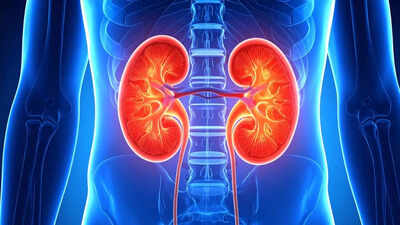
The terms renal failure and kidney failure are often used interchangeably, but they carry slightly different connotations. Both describe the same medical condition, a significant loss of kidney function, where the kidneys can no longer effectively filter waste and excess fluids from the blood. The word renal comes from the Latin renes, meaning “kidneys,” and is commonly used in medical terminology, such as renal disease or renal function tests. In contrast, kidney failure is a simpler, more widely understood term used by both doctors and the general public. While the meaning is essentially the same, understanding the distinction helps patients better interpret medical discussions and treatment plans.
Renal failure and kidney failure mean the same thing; here’s why
According toa study published in StatPearls, the term “renal failure” denotes the inability of the kidneys to perform their excretory functions, such as removing nitrogenous waste, regulating fluids and electrolytes, and producing key hormones.In medical terminology, “renal failure” is often used in professional and research contexts, while “kidney failure” is the simpler, more widely understood term used in clinical discussions with patients. Both terms describe the same underlying condition, a significant loss of kidney function, but the choice of terminology often depends on the setting.Renal failure refers to a medical condition where the kidneys lose their ability to adequately filter waste products, excess fluids, and toxins from the blood. It is a broader medical term that encompasses both acute and chronic conditions affecting kidney function.Renal failure is often used in clinical and academic settings, as “renal” comes from the Latin renes, meaning kidneys. Doctors may describe blood tests or stages of kidney damage using “renal” terminology, for example, renal impairment, renal insufficiency, or end-stage renal disease (ESRD).Kidney failure is the more widely recognised and patient-friendly term used to describe the same condition. It simply means that one or both kidneys are no longer functioning properly, leading to the buildup of waste and fluid in the body.While “renal failure” is the medical jargon, “kidney failure” is typically used in public health campaigns, patient education, and everyday discussions. It communicates the seriousness of the condition in simpler language.
Symptoms of renal (kidney) failure
- Fatigue and weakness
- Swelling in the ankles, feet, or face
- Decreased urine output
- Shortness of breath
- Nausea and vomiting
- Persistent itching or metallic taste in the mouth
Early detection is crucial, as kidney damage is often silent until significant loss of function occurs.
Types of renal (or kidney) failure
1. Acute kidney failureAcute kidney failure occurs suddenly, often within hours or days. It can be caused by severe dehydration, infections, certain medications, or reduced blood flow to the kidneys. This form can sometimes be reversed if treated promptly with adequate hydration, medical supervision, and timely correction of underlying causes to restore normal kidney function.2. Chronic kidney (Renal) failureChronic kidney failure develops gradually over months or years, often due to long-term conditions such as diabetes, hypertension, or glomerulonephritis. It is progressive and, if untreated, can lead to end-stage kidney disease requiring dialysis or transplantation. Early diagnosis, lifestyle changes, and consistent medical management can significantly slow disease progression and preserve kidney health.
Although renal failure and kidney failure refer to the same condition, the underlying causes are often described differently depending on the medical context. Below is a clear distinction in how each term is used and understood.
- Chronic conditions, such as diabetes or untreated high blood pressure.
- Kidney stones or urinary obstruction, which blocks the flow of urine, that damage kidney tissues.
- Dehydration or loss of blood flow from injury, surgery, or shock.
- Toxin exposure from medications, alcohol, or certain chemicals.
- Autoimmune diseases, such as lupus, can attack kidney tissue.
Disclaimer: This article is for informational purposes only and should not be considered medical advice. Please consult a healthcare professional before making any changes to your diet, medication, or lifestyle.Also read | Living with lymphedema after cancer: Know the causes, signs, and ways to reduce swelling and discomfort








